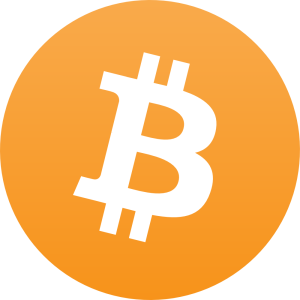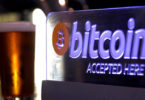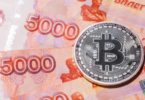Stock market is passe. Mumbai’s youngsters are investing in an avant garde currency, even as the RBI keeps a close watch.
Since graduating in mechanical engineering this June, Sanket Shah hasn’t bothered hunting for a job. But that hasn’t thrown a spanner in his lifestyle.
The 21-year-old resident of Ghatkopar (E) spends his days watching movies, hanging out at coffee joints and partying with his friends. The bills aren’t footed by his printing press owner dad and banker mum. “When you hit a certain age, it’s awkward to ask your parents for money. Since I graduated, I haven’t taken a single penny from them,” he says, with pride.
The secret to Sanket’s self-sustenance lies in Bitcoins – a digital currency launched in 2008 by someone who called himself Satoshi Nakamato. While Nakamato has disappeared since, the Bitcoin has gained in popularity – when it was launched it was worth a quarter of an American dollar and stands at $138 (Rs 8,625) now.
The Bitcoin sensex
Since the Bitcoin is not a regular currency – no stacks of gold or government income govern its value – its rate is governed by demand against limited supply. The algorithm that Nakamato (see box) created allows only a limited number of Bitcoins to be generated. It is estimated that no more than 21 million Bitcoins can be mined over a period of 140 years. According to the programme, the last Bitcoin will be produced in 2140.
One of the easier ways of acquiring Bitcoins is much like making any investment. Buy it at today’s rate, and sell it tomorrow at a higher one. Which is how Shah, who first learnt about them through the media, started making money.
To start trading in Bitcoins, you need to open a wallet by logging on to vendor portals such as blockchain. info, coinbase.com and bitcoin. org. This is free of charge. Each wallet has a unique ID comprising a string of 33 characters (numbers and letters), which must be used when you make a transaction. Transactions can be made even via a smartphone. Bitcoin transactions are conducted through pseudonymous, and the identity of the real buyer and seller are protected.
But the profits from trading, though high, are limited. When Shah bought his first Bitcoins the exchange rate was $115 for one Bitcoin. Their sale to a Mumbai buyer brought him profits of a couple of thousands, allowing him to afford a new smartphone. Payment for a Bitcoin purchase is made via regular bank accounts.
Dig into the mine
The real money, agree Chembur resident Jugal Sampat and Napeansea Road resident Ankesh Kothari, lies in mining the coins. Sampat, a 24-year-old technology student, earns a profit of Rs 5,000 a month by trading in Bitcoins. Sampat, who works part-time as a marketing executive, bought his first currency from a global exchange (mtgox. com) portal in March 2013 for about $80 each. He made his first profit within a week when the dollar rate escalated to above $115 the next month. “When I earned my first profit in Bitcoin trade, I grew hungry for more and set up a mini mine at home by combining the procession powers of my desktop PC and laptop,” he says.
To mine a Bitcoin, you need to download a software. Once linked to the Internet, the software gets busy in solving algorithms generated by Nakamato’s original. Solving these will allow a certain amount of Bitcoins to be deposited in your wallet. This could be anywhere between 25 Bitcoins to even a fraction of a Bitcoin. As the number of Bitcoins being mined increases, the algorithm grows complicated, requiring high-end processors.
Across the globe, 144 blocks of Bitcoins are mined every day. Each block contains 25 Bitcoins. The mining protocol states that every four years, the rate will halve.
Till last year, you could mine with your personal computer. Now, however, Sampat – with the combined power of a desktop PC with an i5 processor and a top-of-the-line laptop with an i7 processor, running seven hours a day – is able to mine only 0.0001 BTC or Rs 0.8 per day. With his electricity bill shooting up by Rs 600, this means a loss of Rs 570 a month. A better processor will cost over Rs 2 lakh.
Kothari has played it smart. The 29-year-old entrepreneur who runs an Internet affiliate management portal called SuccessNexus.com for blogs and content-rich websites, got his first Bitcoins as payment from a client in 2012. “At that time, the exchange rate was between $7-9. I accepted the payment, just for the thrill,” he says. More Bitcoins came in when a Russian in Pune, who wanted to buy a car, offered Bitcoins for cash.
But now, to get a steady source of Bitcoins, Kothari has bought shares of a China-based company called ASIC Miner. The company has rooms full of servers that mine Bitcoins all day. These servers use reprogrammed chip technology called Application Specific Integrated Circuit Chips (ASIC), which has made the mining process faster. Every week, Kothari receives a steady supply of Bitcoins.
There’s a catch
Kothari admits that investing in the China ‘mine’ was risky – “the mining company might shut shop” – but so is every step associated with the Bitcoins. With only demand accelerating its value, if Netizens lose confidence in Bitcoins, their worth will drop like a ton of bricks.
Moreover, while there are several online portals from where you can buy services or products with Bitcoins, the currency itself falls in a legally grey area so far as most traditional economies are concerned.
The Reserve Bank of India, for instance, has not yet formulated regulations to govern trading or profits generated from Bitcoins. An RBI spokesperson told Mirror over email that the RBI doesn’t consider Bitcoin legal tender and, therefore “trading in Bitcoin is not legal. Obviously, there cannot be regulations from RBI for an illegal activity. People who use it, do so at their own risk and responsibility.”
This doesn’t mean that people in India who deal in Bitcoins or possess the same are likely to have criminal proceedings against them. The only time Bitcoins will come under the purview of law is if a case of fraud is reported, following which cops can then initiate action against the fraudulent party.
Guns and drugs
While Sampat, Shah and Kothari are using Bitcoins to make money in the real world, there are those who use the anonymity of its transactions – no bank is involved, zero or minimal processing fee, and identity of all users remains secret – to participate in the illegal trades of guns and drugs.
A communications professional from Bangalore, refusing to be identified, admits he buys Bitcoins to meet his ‘needs’, including a regular dose of Dimethyltryptamine (a banned psychedelic drug). “I order them and get it delivered to a destination within India conveniently.” He places his orders on silkroadvb5piz3r.onion – which users can browse anonymously – where he can pay in Bitcoins and sources illegal drugs from anywhere in the world. “The government cannot track who is paying whom. And even if they catch me because the envelope has my name and address on it, I can claim I never ordered it,” laughs the 23-year-old over the phone.
But, some have put Bitcoins to better use.
Merchants such as Lumfile (a free cloudbased file server), Reditt (a social news and entertainment site), and WordPress (a free blogging site) accept Bitcoins. Bitpay.com, for instance, enables online merchants to accept Bitcoins as easily as they would accept your Master card. It is, currently affiliated with over 10,000 merchant websites. Last August, even Wikileaks, the non-profit media organisation that makes public classified information from anonymous sources, started accepting donations in Bitcoins after top banks announced a financial blockade against it.
Better than gold
At last count, there were approximately 1,17,62,550 Bitcoins in circulation. In June 2010, one Bitcoin rated at quarter of a US dollar. In 2011, the rate rose to $3-4. This year, prices have fluctuated. In April, one Bitcoin cost $237 and crashed the next month to $80. Now it stands at $138.
There have been an estimated 29,400 downloads of Bitcoin wallets from Indian IP addresses. There’s the possibility that one person has downloaded more than one wallet.
But as its popularity as a revolutionary currency increases, people like Kothari hope the rate touches $10,000 by 2020. “It’s the best investment I have made. I have to make sure more people join the Bitcoin network since that’s one way of pushing prices up,” he says, relaxing into the chair in front of his computer.
A SHORT GUIDE
WHAT ARE BITCOINS? Bitcoin is a digital currency not monitored by any government or bank
WHERE DO YOU STORE THEM? Create a digital wallet on vendor websites. On signing up, you get a Bitcoin address, for your future transactions
HOW DO YOU ACQUIRE BITCOINS? Purchase them through exchanges or mine them using a software
USING THEM Several merchants online accept payment in Bitcoins for services and products. They are proven useful in making online payments in foreign countries








